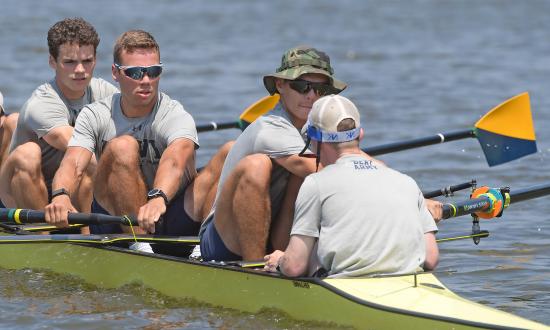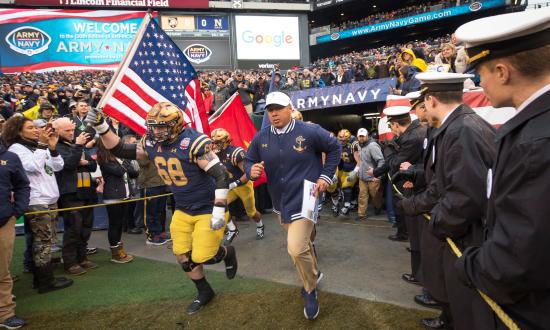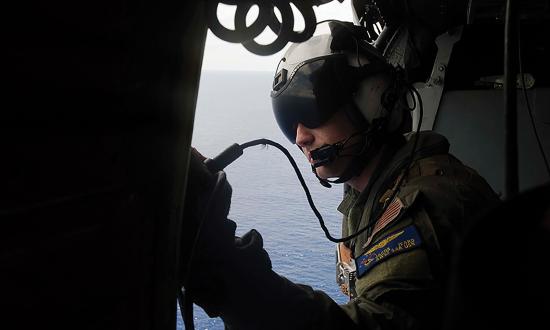While often overlooked in leadership discussions within the Sea Services, many prestigious institutions have attributed their success to employing high quality coaches. Being a good coach was number one on the list when Google identified the top 10 traits of their most impactful managers in 2008. With these lessons in mind, junior officers (JOs) in the Sea Services can better serve their teams by leading like coaches.
Earning Trust
Every day, the parents of young athletes entrust the well-being of their children into the hands of coaches to oversee their physical and mental development. An even greater level of trust has been placed in the hands of JOs in the Sea Services. JOs must remember that their greatest charge and honor is leading these young sailors, often into harm’s way. This should never be taken lightly. Trust is the bedrock of leadership, and a JO must continuously ask whether he or she is leading in a manner that earns it. Honest, frank conversations are essential for the development and growth of young athletes and sailors alike. This part of the job is not always easy, and often requires tough love. However, coaches should always strive to earn the trust placed in them and avoid harsh or abusive treatment. Sideline conversations, whether for praise or improvement, provide opportunities to develop the team, but first the team must trust the JO to lead with the best interest of both the team and the individual to truly listen.
Share the Ball to Develop the Team
All teams have star players with more seasons under their belts or more natural talent. A wide range of skills and abilities among teammates is common to both youth sports and teams in the Sea Services. Unfortunately, poor coaches often devote more energy to standout pupils. This may lead to success in the near-term but will ultimately degrade a group’s performance over the long-term. Successful coaches know to embrace short-term risk by placing inexperienced players in positions to learn and overcome challenges. JOs will likely face the same scenario within their own teams.
Coaches who focus too much attention on a select few can create an atmosphere that fosters a lack of ownership. The star players are seen as the only ones who matter to the coach and the only ones who play a role in the success of the team. Alternatively, a coach that engenders an environment where every team member is just as important as the next will create a sense of ownership that leads to collective growth and a better-rounded, more cohesive unit. Improving each link in the chain will naturally improve the resiliency of the chain itself.
There is no universally effective method of coaching. However, a great coach can explain how each member of their team needs encouragement and correction to excel. JOs can only become this type of leader when they engage with their subordinates on a personal level—which requires investing time and energy. Every member of the team should know how important they are as players and people. By getting to know the team, a JO can identify and cultivate the raw talent lying dormant within their ranks. While sailors will come and go within their divisions and departments, JOs are there to provide a solid foundation of professionalism and positive experience so that sailors can grow confidently into roles of increasing responsibility within the Navy.
Youth sports will never be solely about winning, but there are times when winning does matter. A coach must recognize these situations and always know who they can rely on when the team is down, time is running out, and the championship is on the line. Likewise, a JO must understand his or her team well enough to know who needs to step in and take the shot when mission success is on the line.
Cultivate Your Leaders
JOs are essential in raising the bar and setting high standards for the young sailors under their command. While still investing in each player individually, particular focus should be directed toward cultivating leaders. When running sprints at the end of a practice, a good leader can extract every ounce of effort from the team by being the one who never gives up—even in the face of adversity. Without leaders to play this vital role, the team will never reach its full potential.
For young leaders to harness their full potential, they need to know their coach is relying on them. JOs must do the same. If JOs never convey the expectations to the team leaders, then leaders under their charge will neither flourish nor raise the team to its ultimate best.
Small Wins, Big Wins, and Losses All Matter
No youth sports team will get every move, play, or technique correct all the time. This will be most apparent at the beginning of the season, when the team has just been assembled. Correcting players is instrumental to their training, but constant criticism can crush their confidence.
JOs and coaches must celebrate all victories—both small and large—on the long path to improved performance. No player or team will reach their potential without gaining the confidence to continue in the face of adversity. JOs can accomplish this by recognizing each incremental step in the right direction. By building up the team, a JO can instill a sense of faith in his or her subordinates that their hard work will yield the envisioned results.
Something as simple as a “great job” and a fist bump can boost confidence, and JOs should constantly be on the lookout for opportunities to reward their teams for even small victories. Getting the most out of a team does not come from barking orders, but instead instilling a genuine desire for improvement.
A great coach will ensure the team knows that every win, whether a championship victory or a small success at practice, was a result of the players’ effort. The coach must see him or herself as nothing more than a conduit for the team to achieve success. Coaches merely cultivate in their players the necessary tools to win. The players are the ones who must perform, and a great coach passes all credit to the team.
Conversely, coaches must hold themselves accountable for losses, missteps, or missed shots. Every failure by the team should be directly linked back to the coach, either through a lack of preparation during practice or a bad play call during a game. When their team misses the mark, it is up to the JO to find new initiatives to train, motivate, and improve. “What can I do to better set my team up for success next time?” is the mantra all coach-minded JOs should adhere to.
This humility also reminds the coach that he or she may not have all the answers after a tough loss. A JO should consistently pursue feedback from the team to help understand where problem areas exist, and why they were unable to execute as planned. If an environment of trust and a mentality of constant improvement exists within the team, they will be empowered to provide critical feedback, ideas, and suggestions to enhance strategy development for the next challenge.
Clear, Concise Directions
All the technique and skill in the world is no antidote for murky instruction. Giving the star player the ball with guidance to simply score a goal could end up with points on the wrong side of the scoreboard. Without detailed and accurate instructions, a JO will likely find his or her team in the same predicament. It is unfair and dangerous for military leaders to rely on their teams to infer their intentions based on inadequate guidance. Too many or overly complicated steps can result in confusion or the perception that a goal is unachievable. This type of environment can be frustrating for teams and grind motivation to a halt.
Ambiguous direction can be overcome by a JO who takes the time to understand the end state and charts a path to achieve it. Proper planning and collaboration with their chief petty officers will limit future unintended consequences and will ensure the team never scores on the wrong goal.
Looking Ahead
A JO’s leadership toolkit should include a variety of skills to optimize his or her team’s success, and the best officers constantly look for improvement. A coach mentality offers a timeless paradigm for leaders regardless of the environment. Although junior officers should maintain a plethora of leadership skills, when all else fails, when they are out of answers, and when uncertainty clouds decisions, they can never go wrong if they lead like a coach.






